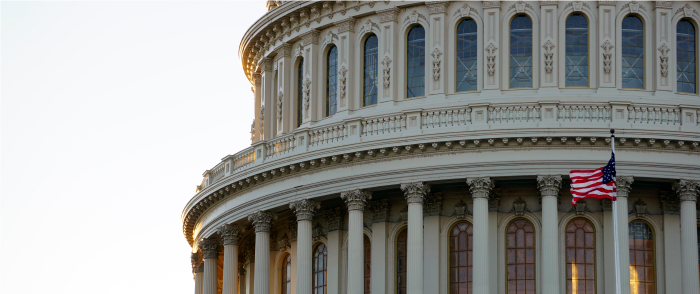"Can I Require Employees to Get the COVID-19 Vaccine?" and Other FAQs

Now that a COVID-19 vaccine has become available, employers may be asking whether they can require employees to be vaccinated. Below, we answer this and other frequently asked questions about COVID-19 vaccination.
Q: Can an employer require employees to get the COVID-19 vaccination?
A: In the past, the U.S. Equal Employment Opportunity Commission (EEOC), which enforces federal nondiscrimination laws, has generally advised against requiring vaccines, such as the flu vaccine. On December 16, 2020, the EEOC published updated guidance that addresses COVID-19 vaccination specifically. While the guidance doesn't expressly endorse or prohibit mandatory vaccination, it does address various issues that may impact employers, including:
- Whether the administration of vaccinations implicates the restrictions on medical exams and disability-related inquiries under the Americans with Disabilities Act (ADA)?
- How should an employer that requires vaccination respond to an employee who indicates they are unable to receive a COVID-19 vaccination because of a disability?
- How should an employer that requires vaccination respond to an employee who indicates that they are unable to receive a COVID-19 vaccination because of a sincerely held religious practice or belief?
The guidance is available in full here (section K covers vaccinations).
Additionally, keep in mind that some state and local jurisdictions may prohibit or limit employers from mandating employee vaccinations or have privacy laws that may impact employers.
Other Considerations:
Even if an employer can mandate COVID-19 vaccination, there are numerous issues to consider before doing so, such as:
- The availability of a vaccine (the vaccine is limited to healthcare personnel, essential workers and higher-risk populations at first);
- The risk to others if employees don't get vaccinated;
- The effectiveness of masks, social distancing, and other safety measures in preventing the spread of COVID-19 in their particular workplace so far;
- The likelihood of employees seeking out the vaccine without a mandate;
- The risk of litigation or workers' compensation claims if employers do/don't require vaccination (such as, an employee experiencing side effects from the vaccination);
- Requirements for providing accommodations for disabilities and sincerely held religious beliefs and practices;
- Protections for employees under the National Labor Relations Act (NLRA) if they work together to oppose a vaccine mandate; and
- The potential impact on employee morale given the work environment and culture.
Rather than mandating COVID-19 vaccination, many employers plan to encourage employees to get it. Before implementing any such program, consult legal counsel.
Q: I'm not going to require vaccination, but if an employee has an underlying condition that puts them at higher risk if they get COVID-19, can I exclude them from the workplace if they don't get the vaccine?
A: In the guidance published on December 16, 2020, the EEOC states if the standard above screens out or tends to screen out an individual with a disability, the employer must show that an unvaccinated employee would pose a direct threat due to a "significant risk of substantial harm to the health or safety of the individual or others that cannot be eliminated or reduced by reasonable accommodation."
If an employer determines that a direct threat exists, the employer can only exclude the employee from the workplace—or take any other adverse action—if there is no way to provide a reasonable accommodation (absent undue hardship) that would eliminate or reduce the risk so there is no longer a direct threat.
Note: State and local nondiscrimination laws may offer additional protections.
Q: Would asking applicants or employees to show proof that they received the COVID-19 vaccination implicate the ADA's restrictions on disability-related inquiries?
A: By way of background, the ADA has restrictions on when and how much medical information an employer may obtain from any applicant or employee. For example, prior to making a conditional job offer to an applicant, the ADA generally prohibits disability-related inquiries and medical exams. Once an employee begins work, any disability-related inquiries or medical exams must be job related and consistent with business necessity.
In the guidance published on December 16, 2020, the EEOC states that simply requesting proof of receipt of a COVID-19 vaccination isn't likely to elicit information about a disability and, therefore, isn't a disability-related inquiry. However, subsequent questions, such as asking why an individual didn't receive a vaccination, may elicit information about a disability and would be subject to the requirement that the questions be job related and consistent with business necessity. If an employer requires employees to provide proof that they've received a COVID-19 vaccination, the employer may want to advise the employee not to provide any medical information as part of the proof in order to avoid implicating the ADA, according to the EEOC.
Note: Some state and local jurisdictions may restrict or prohibit employers from asking for proof of COVID-19 vaccination.
Q: If an employee receives the vaccination, can they stop wearing a mask in the workplace?
A: The CDC is currently recommending that employees continue wearing a mask and practicing social distancing even if they receive the vaccine. Employers should also keep in mind that state and local requirements for wearing masks and practicing social distancing may not provide exceptions for individuals who are vaccinated.
Q: Do I have to pay employees for the time they spend getting vaccinated?
A: If employers simply recommend vaccination, they are under no obligation to pay employees for the time they spend getting the shot. However, if employers require vaccination, they would generally need to pay employees for the time they spend complying with the requirement.
Q: I plan on encouraging employees to get the COVID-19 vaccine rather than requiring it, but what should I do if an employee expresses concern about the vaccine?
A: If an employee has concerns about the safety and efficacy of the vaccine, recommend that they contact their doctor and point them to the CDC's website. Senior leadership at your company can also demonstrate support for the vaccine by receiving the vaccine themselves. If employees have concerns about potential cost, you can let them know that vaccine doses purchased by the federal government will generally be provided at no cost. However, vaccination providers may be able to charge administration fees for giving the shot. In such cases, many health plans will cover the fee at no cost to the policy holder. For uninsured individuals, there may be assistance available to cover the administration fee.
Note: If employers are permitted to require vaccination and do so, they may be required to pay for the cost of it. Under federal law, employers would be required to cover the cost if it would reduce the employee's pay below the minimum wage. Under some state laws, employers would be required to cover the cost even if it doesn't reduce the employee's pay below the minimum wage.
Q: Will there be enough doses of the vaccines for everyone?
A: Currently, two vaccines are authorized and recommended to prevent COVID-19 in the United States. However, there are other vaccines in or near large-scale clinical trials that may be approved in the future. While the initial supply of the vaccine is limited, as availability increases, access to the vaccine will expand. State and local health agencies also have their own distribution plans.
Q: How many doses of the COVID-19 vaccine will each person need?
A: The currently available vaccines require two doses. With one vaccine, the second dose should occur three weeks after the first. With the other vaccine, the second dose should come 28 days after the first. Some of the other vaccines in Phase 3 trials also require two doses but may have different timing requirements.
Q: Where will the vaccine be available?
A: Once the vaccine supply increases, the plan is to offer the vaccine at thousands of doctors' offices, retail pharmacies, hospitals, and health centers.
Conclusion:
Before implementing vaccination policies, review the rules that apply to your business to ensure compliance.



